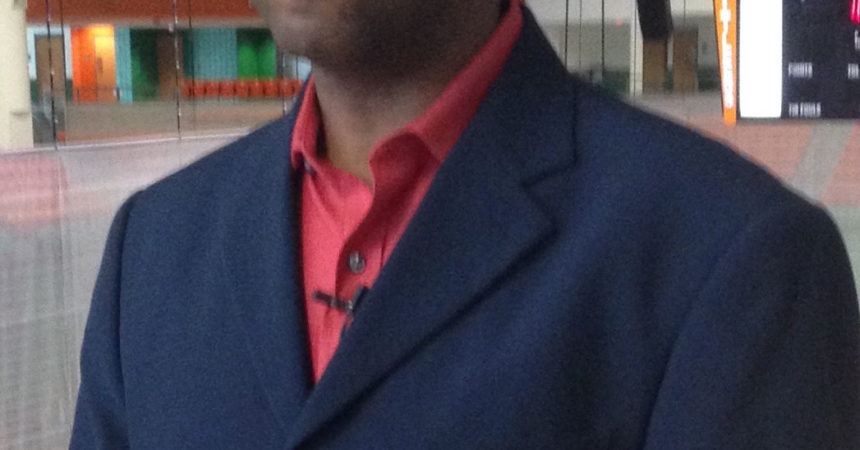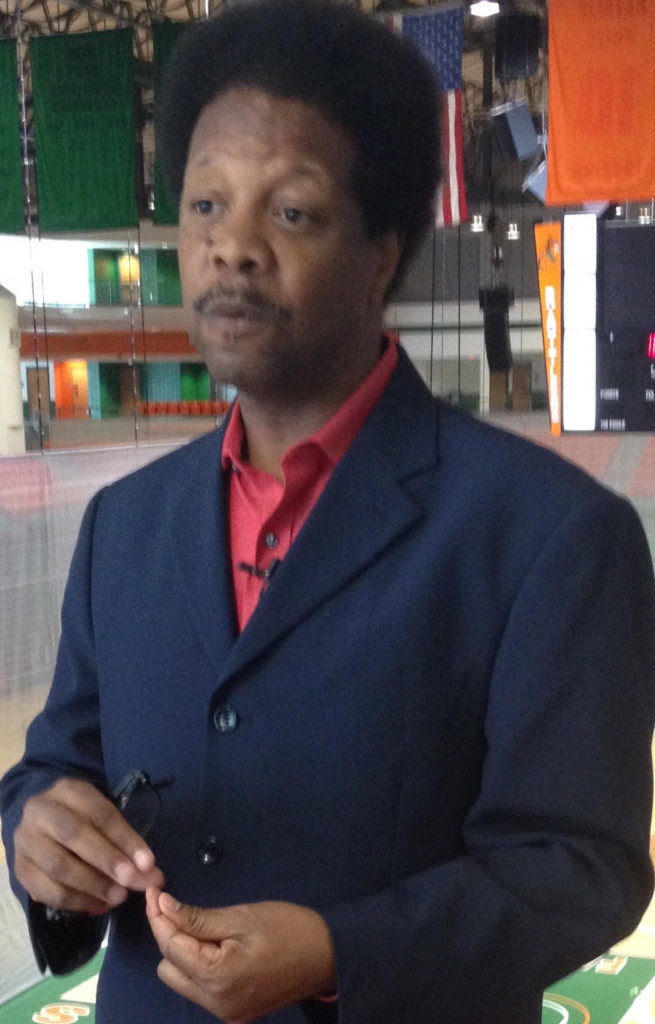
Desire to fix social ills leads Proctor to politics

County commissioner Bill Proctor has championed several civil rights causes.
Photo by St. Clair Murraine
By St. Clair Murraine
Outlook staff writer
The memory of what he saw that led him to a life of public service is still vivid.
Bill Proctor was giving a motivational speed to a group of high school children when some of the girls got his attention. They were teenage mothers-to-be who seemed to be looking for answers.
“I remember seeing their eyes,” said Proctor, a member of the Leon County Commission. “Their eyes were one of hopelessness. They had that look in their eyes as though they were already dead. What I saw disturbed me.”
So much so that Proctor set out to begin what has become one of the most anti-status quo political careers. He represents District 1, an area that he constantly claims to be an after-thought by government.
In his nearly three decades in politics he’s tackled many civil rights issues, called out government officials for what he deems injustices.
But no matter the fight, Proctor has won the respect of his peers and the loyalty of his constituents.
His contribution to his constituents and the community as a whole will be recognized on Sept. 7 at the Civic Center. He is one of seven individuals who will be honored at the Bethel Empowerment Community Banquet.
Proctor, said Dale Landry, former president of the local NAACP chapter, is deserving of the honor. They’ve fought several civil rights cases side by side.
He never sugarcoats a crisis, Landry said of Proctor.
“The one thing Bill does is keep it in their faces,” he said. “He wouldn’t let them hide behind a lie.”
Proctor might not have been a politician if he didn’t feel it was his calling, he said. His path was heading to law after spending seven years at Howard University, where he attended law school.
It is there that Proctor seemingly became indoctrinated in fighting for civil rights, influenced by the likes of Thurgood Marshall. But the seed was already planted by his mother, Patricia, and a neighbor, activist Roosevelt Harris.
He also credits his father, William, for paying his way through years of studies that included attending seminary schools for three years.
“My father is a strong proponent,” Proctor said. “Not just strong in words, but he’s strong in deed. He wrote every dime that I ever paid for. My daddy supported me to the max.”
Proctor got an inside look at how politicians maneuver before he graduated from FAMU High. He worked in the office of former senator Gwen Cherry, who became his mentor.
By his senior year in high school, he’d moved on to work for former senator Joe Brown, delivering journals and calendars to senators. Former congressman Bob Graham embraced him when he left high school, keeping him in a circle of politicians.
The experiences he had as a teenager was the perfect prep for what was to follow.
“It was a hell of an introduction by being around the players in politics in the 1970s,” Proctor said.
Proctor took his first stab at public office when he ran unsuccessfully for school superintendant at age 32. Later he’d work with the campaign of former Gov. Lawton Chiles, who made him a special assistant.
He made his first run for a county commission seat when Anita Davis resigned to run for Congress. Davis returned to contend for the seat, but Proctor took that election by 15 votes following a recount.
He hasn’t lost as an incumbent since, as his constituents continually showed their loyalty for his fight. He wins despite a reputation for challenging the status quo.
“If you’re not going against the grain and you’re not swimming upstream you’re going in the wrong direction,” he said. “You’re going with the status quo. It’s that simple.
“I’m not political. I’m not looking for three people to vote with me. I do my own thinking and I’m willing to live or die by what I think.”
Proctor’s major fights for his district include the widening of Woodville Highway and Orange Avenue. For years he’s fought for the makeover of the Fairground, eventually getting the funding for its redevelopment.
His persistence from approaching each issue unselfishly is what drives him, Proctor said.
“If you see the world through I, me and my, your contribution is going to be null,” he said. “Martin Luther King and other great men saw the world as we, us and ours. I view my community as us, we, and ours. That’s why what happens to you; happens to me.”







